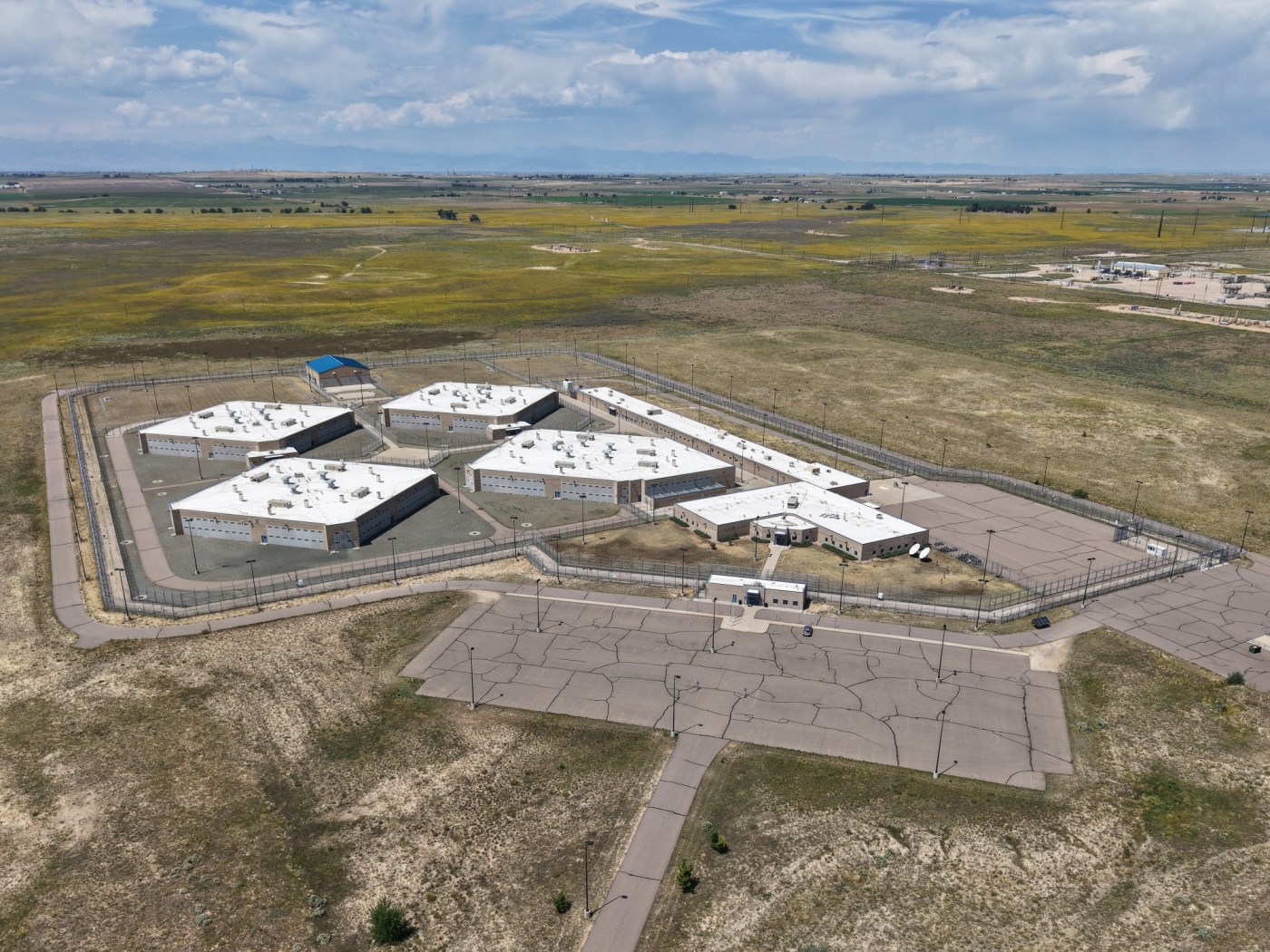U.S. Immigration and Customs Enforcement (ICE) plans to significantly increase its detention capacity in Colorado by opening as many as three new facilities in the coming months. According to planning documents obtained by the *Washington Post*, this expansion will more than triple the state’s current immigrant detention capacity.
The agency is set to reopen a previously closed correctional facility in Hudson, located northeast of metro Denver. In addition, ICE is targeting the reopening of a private prison in Walsenburg, situated in southern Colorado, and plans to increase the bed count at the Southern Ute Detention Center in Ignacio, which is located on the Southern Ute Indian Reservation, southeast of Durango.
The documents indicate that ICE aims to expand its existing facility in Aurora from a contracted limit of 1,360 beds to a maximum capacity of 1,530. These expansions, along with the new facilities in Hudson and Walsenburg, are anticipated to be operational by the end of the year.
Wider Implications for Detention Capacity
This aggressive expansion aligns with the broader goals of the Trump administration to increase immigration enforcement and detention. By January 2024, ICE plans to have a total of 107,000 detention beds nationwide, which would represent more than double the nearly 50,000 capacity when President Trump began his second term.
If all three new facilities—Hudson, Ignacio, and Walsenburg—become operational, Colorado would rank sixth in the nation for ICE detention bed capacity. This expansion would elevate the state’s capacity from the current 1,360 beds to over 4,000, marking a substantial increase.
A spokesman for the U.S. Department of Homeland Security confirmed the authenticity of the planning documents but stated that the information was outdated, with the last update occurring on July 30, 2023. The spokesman noted that the contracts listed were “not accurate.” ICE has not responded to inquiries from local news sources regarding the expansion plans.
Industry Response and Future Plans
CoreCivic, the private prison company that owns the Walsenburg facility, has not provided comment on the situation. Similarly, a spokeswoman for the Southern Ute Tribe was unavailable for comment. The expansion has been partly fueled by a recent tax-and-spend bill passed by Congress, which included $45 billion designated for ICE detention facilities.
During a May earnings call, Damon Hininger, CEO of CoreCivic, mentioned that ICE had expressed interest in both the Walsenburg facility and a closed prison in Burlington. The company had been advertising detention officer positions for the Walsenburg prison, contingent on securing a contract, although those postings have since been removed.
The Hudson facility is owned by the GEO Group, which also operates the Aurora detention center. Communication attempts to the GEO Group regarding the expansion plans have gone unanswered.
It remains uncertain whether the list of planned new facilities will expand further. In a recent earnings call, Pablo Paez, executive vice president for corporate relations at the GEO Group, indicated that the company is in discussions with ICE and the U.S. Marshals Service regarding activating several additional sites nationally, including the Cheyenne Mountain Reentry Center in Colorado Springs.
As Colorado prepares for this potential increase in detention facilities, the impact on local communities and the broader immigration landscape is poised to be significant. Observers and advocates will undoubtedly be watching closely as these developments unfold in the coming months.
